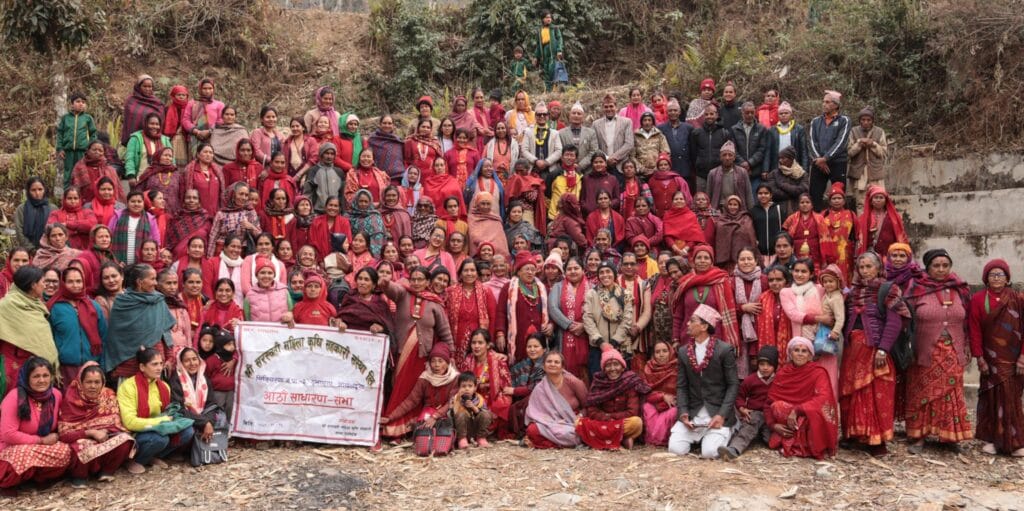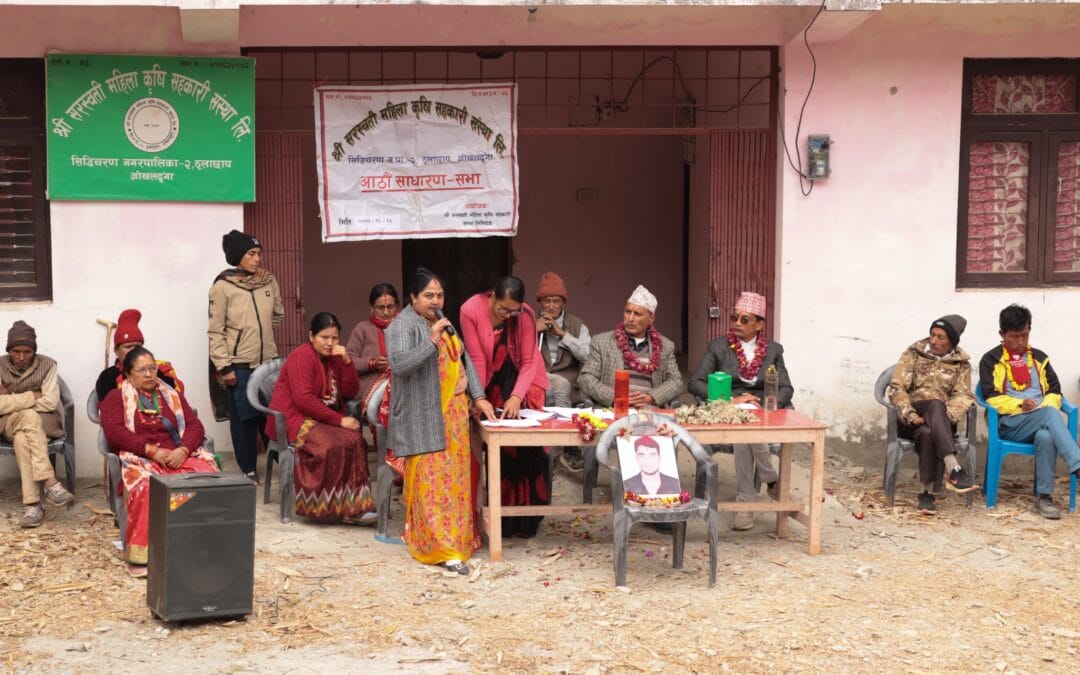In the remote village of Thulachap, Siddhicharan, Okhaldhunga, women are breaking barriers and forging a path toward financial independence and community development. The 8th Women’s General Assembly of the Shree Saraswati Women Agriculture Cooperatives stands as a testament to the transformative power of grassroots initiatives. This cooperative is part of the Microcredit Cooperative Support project, a visionary program designed to provide women in underprivileged communities with access to affordable, sustainable financial services.
The Vision Behind the Microcredit Cooperative Support Project
In many rural communities across Nepal, women have long been excluded from formal financial systems. Limited access to credit, coupled with social and economic inequalities, often traps them in cycles of poverty. The Microcredit Cooperative Support project, supported by the Volunteer Initiative Nepal (VIN), aims to break these barriers. Its primary goal is to provide women with the tools and resources they need to become financially independent while strengthening their community’s overall economic resilience.
Unlike traditional financial institutions, which are often disconnected from the local community, VIN’s approach is rooted in the belief that the women themselves should lead the change. The project focuses on establishing women’s cooperatives where the women are not only members but also the owners and shareholders of the cooperative. This model fosters a sense of ownership, responsibility, and empowerment, ensuring the sustainability of the project long after VIN’s involvement.
The Role of VIN in Empowerment
VIN’s approach to microfinance differs significantly from other service providers. While other institutions may provide loans and financial products, VIN goes a step further by providing essential training, facilitation, and initial funding. Instead of owning the cooperatives themselves, VIN partners with the women of the community to form and manage the cooperatives. VIN then trains these women on financial management, leadership, and entrepreneurship, empowering them with the skills needed to handle their financial operations independently.
This approach not only gives the women of these cooperatives the tools they need to manage their businesses effectively, but it also instills a sense of confidence and leadership. As the cooperatives become self-sustaining, they provide a reliable source of income for the women, which they can reinvest into their families, businesses, and communities.
The 8th Women’s General Assembly: A Milestone

The 8th Women’s General Assembly of the Shree Saraswati Women Agriculture Cooperatives marked a significant milestone in the project’s ongoing success. It was a moment of celebration and reflection, where members gathered to discuss progress, challenges, and future goals. These assemblies serve as vital platforms for women to share knowledge, voice concerns, and collaborate on solutions that will help them thrive.
At this year’s assembly, the women discussed the challenges they face in maintaining sustainable agricultural practices, accessing markets, and balancing their financial responsibilities. Despite these challenges, the collective spirit and determination of the women were evident. Through mutual support, they have cultivated not only crops but also a deep sense of empowerment and solidarity.
The Road Ahead
The success of the Shree Saraswati Women Agriculture Cooperatives is a shining example of what can be achieved when women are given the tools to lead and innovate. With continued support from VIN and the dedication of the cooperative members, these women will continue to build a prosperous future for themselves and their communities.
However, challenges remain. Scaling up the cooperative’s operations, expanding access to markets, and ensuring that the cooperatives remain self-sustaining are ongoing priorities. Nevertheless, the strength, determination, and unity of the women involved give hope for a brighter future.
Conclusion
The 8th Women’s General Assembly is more than just a meeting—it is a symbol of the progress that has been made and the progress still to come. Through VIN’s innovative approach to microfinance and cooperative development, the women of Thulachap are not just accessing financial services they are building a legacy of empowerment, self-reliance, and community transformation. Their journey is a powerful reminder that when women are empowered, entire communities thrive.
The road to empowerment may be long, but with each step, these women are proving that they are not just the backbone of their families—they are the architects of their own futures.

